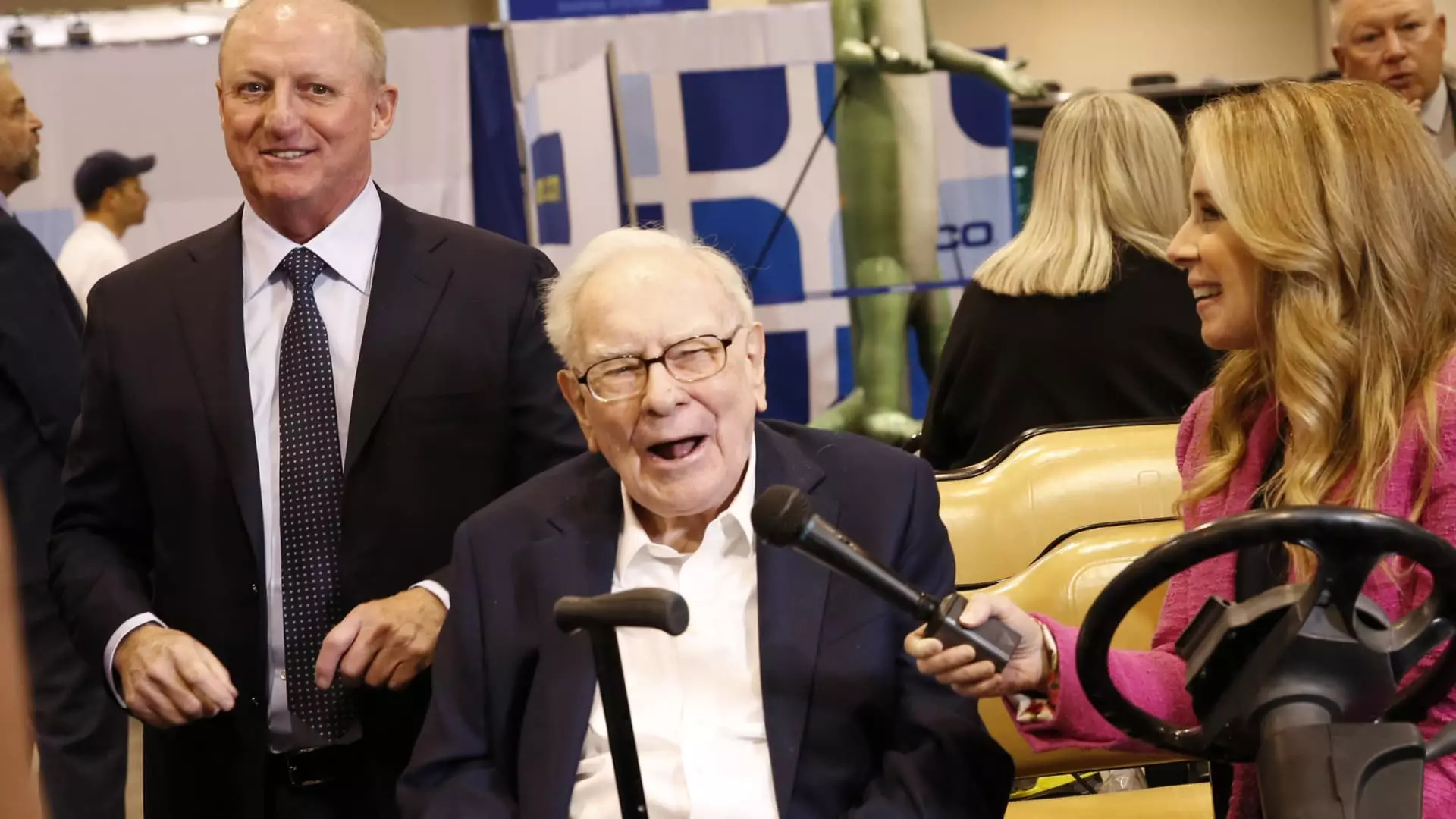Warren Buffett, the oracle of Omaha, is set to step down from his role as CEO at Berkshire Hathaway after an astounding six decades of leadership. His announcement sent ripples through the investment community, as many have grown up with his personality and investment philosophies shaping their understanding of finance. While his decision to pass the reins to Greg Abel might seem like the end of an era, it also signifies a pivotal moment for the future of one of the most successful investment firms in history.
Buffett’s tenure has been nothing short of legendary. Taking over what was then a struggling textile company in 1965, he transformed it into a thriving conglomerate with a staggering increase in stock value—boasting a jaw-dropping 5,502,284% growth by the end of 2024. This figure is not just a testament to his remarkable acumen but also positions Berkshire Hathaway as a shining example of how astute long-term investing can yield outsized returns, surpassing even the dominant S&P 500 index, which itself has appreciated by a mere 39,054% during this time frame.
A Model for Resilience and Performance
The resilience that Buffett has demonstrated through various economic climates is noteworthy. While most investors struggle during market downturns, he managed to consistently outperform the broader market. Notable years like 1998 and 1976 illustrate this talent clearly: Berkshire’s stock soared 52.2% and 129.3%, respectively, while the S&P lagged considerably. This remarkable track record has solidified Buffett’s reputation within the investing sphere, making him a prototype for any aspiring investor looking to achieve long-term success.
What sets Buffett apart is not merely the numbers, but the philosophy behind them. He firmly believes in value investing, a strategy that looks for undervalued businesses with strong fundamentals rather than chasing fleeting market trends. This philosophy has been particularly rewarding in volatile markets. For example, while technology stocks fell dramatically in 2022, Berkshire achieved a 4% increase, a feat that further cements Buffett’s unique positioning as a stalwart in trying economic conditions.
The Inevitable Challenges of Transition
With great legacies come great expectations, and as Buffett prepares to hand over the CEO title, significant scrutiny awaits his successor, Greg Abel. While Abel has been groomed for this role and possesses the experience necessary to uphold Buffett’s investment principles, the transition will inevitably bring challenges of its own. A legacy such as Buffett’s creates high expectations, and any perceived underperformance could lead to a backlash from investors who are accustomed to years of remarkable returns.
Moreover, Buffett’s final year as CEO serves as a paradoxical high note, with Class A shares climbing nearly 19% in 2025, juxtaposed against the S&P 500’s decline. This begs the question: Can Abel sustain this momentum? While he may share Buffett’s philosophy, replicating the alchemy that created the Berkshire Hathaway we know today is no small task. The uncertainty surrounding the transition can create turbulence and doubt in investor sentiment, areas that Buffett navigated like a seasoned sailor through stormy seas.
The Value of Hope and Continuity
As Buffett steps down, we should also reflect on the broader implications of his departure. The value of legacy in finance surpasses merely the company’s stock; it lies in the adherence to its core principles, which prioritize long-term results over short-term gains. Value-oriented investors, as emphasized by finance experts like Jeremy Siegel, view this transition with a mixture of optimism and caution. The investment landscape is rife with uncertainty, yet Buffett’s philosophies remain a beacon for many.
The baton has been passed, but Buffett’s voice will continue to echo in the strategies of Berkshire Hathaway even in his absence. The investment community is not merely bidding farewell to a leader but also embracing a continuing legacy of informed decision-making. For center-right wing liberals, this transition encapsulates the essential belief in meritocracy—the idea that sound principles and responsible management can yield prosperity, even amidst the turbulence of modern markets.
The investment world watches closely, hopeful that the institutional knowledge cultivated over half a century will endure through Abel’s leadership, continuing the legacy of Warren Buffett.

